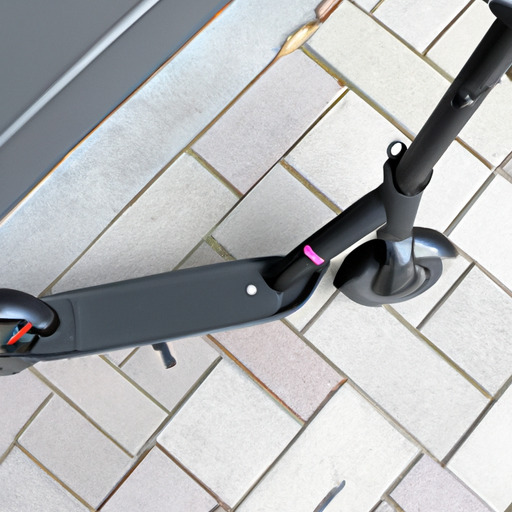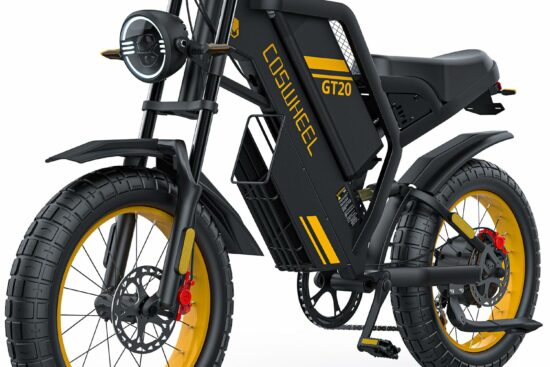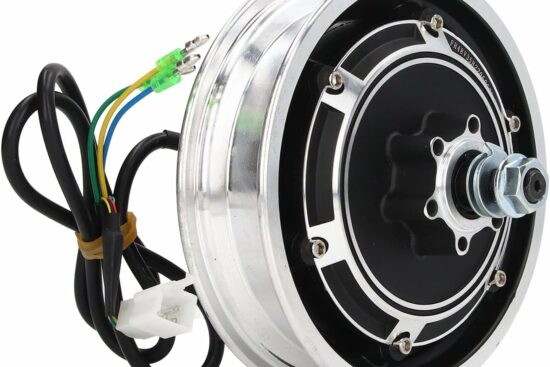
So, you’re probably wondering if electric scooters are allowed on pavements, right? Well, it’s a bit of a complicated answer. Some cities and countries have specific regulations in place, while others may not have any at all. It really depends on where you live and the local laws that govern electric scooters. In some places, you might be able to ride them on pavements as long as you follow certain rules and regulations, such as limiting your speed and yielding to pedestrians. However, in other areas, it may be completely illegal to ride electric scooters on pavements and you could face fines or other penalties. The important thing is to do your research, check with your local authorities, and make sure you’re aware of the rules in your area before hopping on your electric scooter and hitting the pavement.
If you want to dive deeper into this topic and find out more about the legality of electric scooters on pavements, then you’re in luck! In our upcoming article, we will explore the different regulations and laws that exist around the world when it comes to electric scooters and pavements. We’ll discuss some of the common rules that you need to be aware of, as well as some of the potential risks and challenges of riding electric scooters on pavements. So, whether you’re a current electric scooter owner or thinking about getting one, stay tuned to our next article to learn all about the legalities of riding on pavements!

Understanding Electric Scooters
Electric scooters have become increasingly popular in recent years as a convenient and environmentally friendly mode of transportation. These compact vehicles are powered by electric motors and can reach speeds of up to 15 to 20 miles per hour. However, their rising popularity has also raised questions about their legality and safety, particularly when it comes to their use on pavements.
What are electric scooters?
Electric scooters, or e-scooters for short, are two-wheeled vehicles that are propelled by an electric motor. They typically feature a handlebar for steering, a deck on which the rider stands, and a battery-powered motor that provides the necessary propulsion. E-scooters are often designed for short-distance commuting and are a popular choice for riders who want a convenient and eco-friendly alternative to cars or public transportation.
How do electric scooters work?
Electric scooters work by harnessing the power of an electric motor, typically located near the rear wheel. This motor is connected to a rechargeable battery that provides the necessary energy to propel the scooter forward. By activating the accelerator, usually located on the handlebars, the rider can control the speed of the scooter. Many electric scooters also feature regenerative braking systems, which convert some of the kinetic energy generated during braking into electricity, helping to improve overall energy efficiency.
Legality of Electric Scooters
The legality of electric scooters varies from country to country and even from city to city. In some places, e-scooters are classified as motor vehicles and must adhere to the same laws and regulations as cars and motorcycles. In others, they are classified as bicycles or personal mobility devices, allowing them to be used on pavements or bicycle lanes. However, in many jurisdictions, the legal framework surrounding electric scooters is still evolving, leaving some confusion regarding their status and permitted use.
Laws regarding electric scooters
To determine the legality of electric scooters, it is important to consult local laws and regulations. Depending on the jurisdiction, there may be specific rules in place regarding the use of electric scooters on public roads and pavements. Some common regulations include age restrictions, speed limits, helmet requirements, and vehicle registration. Additionally, certain areas may ban or restrict the use of electric scooters altogether, particularly in crowded pedestrian zones or areas with heavy traffic.
Are electric scooters legal on pavements?
The legality of using electric scooters on pavements largely depends on local regulations. In some places, e-scooters are allowed on pavements as long as riders adhere to certain speed limits and yield to pedestrians. However, in other areas, it is explicitly prohibited, and riders must use roads or designated bicycle lanes instead. It is important for riders to familiarize themselves with the specific rules and regulations in their area to ensure they are in compliance and to promote safe and responsible scooter use.
Policies and Regulations
As the popularity of electric scooters continues to grow, governments and local authorities are implementing policies and regulations to address safety concerns and ensure the orderly integration of e-scooters into existing transportation systems.
Government regulations on electric scooters
Many governments have recognized the need to regulate electric scooters and have introduced legislation to address their use. This includes setting safety standards for e-scooter design, requiring licensing or registration for riders, and establishing guidelines for parking and fleet management. By implementing these regulations, governments aim to promote safety and reduce the potential risks associated with electric scooter use.
Local policies and restrictions
In addition to national or state-level regulations, local authorities often have the power to implement their own policies and restrictions regarding electric scooters. This can include specifying where e-scooters can be ridden, defining speed limits, and establishing zones where their use is prohibited. These policies take into account the specific needs and challenges of different urban environments and seek to strike a balance between promoting alternative transportation options and ensuring the safety of all road users.

Benefits of Electric Scooters
Despite the ongoing discussions surrounding their legality, electric scooters offer several benefits that make them an attractive option for many individuals.
Environmentally friendly transportation option
One of the primary benefits of electric scooters is their environmentally friendly nature. Unlike traditional gas-powered vehicles, e-scooters produce zero tailpipe emissions, reducing air pollution and contributing to improved air quality. Additionally, their compact size and maneuverability allow for easier navigation in congested urban areas, potentially reducing traffic congestion and associated greenhouse gas emissions.
Cost-effective and efficient
Electric scooters present a cost-effective and efficient means of transportation. Compared to cars or motorcycles, e-scooters require significantly less maintenance and have lower operating costs. The use of electricity as a power source also makes them more affordable in terms of fuel expenses. Furthermore, electric scooters can navigate through traffic more efficiently than larger vehicles, making them a time-saving option for short-distance commutes.
Safety Concerns
While electric scooters offer many advantages, there are also potential safety concerns that need to be addressed.
Risks and hazards for riders
Riders of electric scooters face certain risks and hazards, particularly when sharing the road with larger vehicles. The smaller size and slower acceleration of e-scooters make them more vulnerable in traffic, increasing the chances of accidents, especially in areas with heavy traffic or higher speeds. Additionally, inexperienced or reckless riders may underestimate the risks associated with e-scooter use, leading to potential injuries.
Potential dangers for pedestrians
The rise in electric scooter usage has also raised concerns about the safety of pedestrians. In crowded areas or on narrow pavements, the increased presence of e-scooters can pose dangers to pedestrians, especially those with mobility limitations or visual impairments. The speed at which some e-scooters can travel and the lack of noise they produce can make it more challenging for pedestrians to anticipate and avoid potential accidents.
Sharing Programs
Electric scooter sharing programs have gained popularity in many cities as a convenient and flexible transportation option.
Electric scooter sharing programs
Electric scooter sharing programs allow individuals to rent e-scooters for short periods of time, typically through smartphone applications. Users can locate nearby scooters using a mobile app, unlock them with a QR code, and pay for their usage by the minute or distance traveled. These sharing programs have the potential to enhance mobility options for individuals who do not own electric scooters and provide a last-mile solution for certain transportation routes.
Impact on public transportation
The introduction of electric scooter sharing programs has raised questions about their potential impact on public transportation systems. While e-scooters offer a convenient alternative for short-distance trips, there are concerns that they may divert ridership from buses or trains, leading to decreased ridership and revenue for public transportation agencies. However, some argue that electric scooters could complement existing public transportation systems by providing a first- and last-mile solution and reducing reliance on private cars.
Public Opinion
Public opinion regarding the use of electric scooters on pavements is varied.
Support for electric scooter use on pavements
Many individuals support the use of electric scooters on pavements, viewing them as a convenient and eco-friendly transportation option that helps alleviate traffic congestion. Advocates argue that by allowing e-scooters on pavements, riders have access to safer infrastructure and can avoid potential dangers associated with sharing roads with larger, faster-moving vehicles.
Concerns and opposition
However, there is also significant opposition to the use of electric scooters on pavements. Critics argue that allowing e-scooters on pavements increases the risk of accidents and conflicts with pedestrians, particularly in crowded urban areas. Concerns are also raised regarding the potential for sidewalk overcrowding or blocking, making it difficult for pedestrians, especially those with disabilities, to navigate safely.
Enforcement and Penalties
Enforcing regulations surrounding electric scooters can be a significant challenge for authorities.
Enforcement of electric scooter regulations
Enforcing regulations related to electric scooters often falls to local law enforcement agencies. However, limited resources and the sheer number of e-scooters in operation can make effective enforcement difficult. Some cities have explored the use of technology, such as geofencing, to regulate the speed and areas where electric scooters can be ridden. However, developing effective enforcement mechanisms remains an ongoing challenge.
Potential fines and penalties
To discourage unsafe or illegal e-scooter use, authorities may impose fines and penalties for violations. These can range from monetary fines to impounding e-scooters or suspending riders’ licenses. The specific consequences vary depending on the jurisdiction and the severity of the violation. Imposing penalties aims to promote responsible and safe e-scooter use, encouraging riders to comply with regulations and prioritize the well-being of themselves and others.
Infrastructure and Accessibility
To ensure the safe and responsible use of electric scooters, infrastructure improvements and accessibility considerations are essential.
Improvements needed for safe electric scooter use
The integration of electric scooters into existing transportation systems requires the development of adequate infrastructure. This includes the creation of designated lanes or pathways specifically designed for e-scooters, ensuring safe separation from pedestrians and other vehicles. Adequate signage, lighting, and road markings can also help increase awareness of e-scooters and promote their safe use.
Accessibility for individuals with disabilities
As cities strive to become more inclusive, it is essential to consider the accessibility of electric scooters for individuals with disabilities. This includes ensuring that e-scooter sharing programs are accessible to all, providing options for individuals with mobility limitations or visual impairments. Additionally, planning for infrastructure improvements should take into account the needs of individuals with disabilities, ensuring that e-scooters do not impede the accessibility of pavements and other pedestrian areas.
Conclusion
The legality of electric scooters on pavements remains a topic of discussion and debate. While regulations and policies differ across jurisdictions, it is important for riders to familiarize themselves with local laws to ensure compliance and promote safe and responsible scooter use. As e-scooters continue to gain popularity as a convenient and eco-friendly transportation option, it is crucial for governments, authorities, and riders to work together to address safety concerns, improve infrastructure, and create a more accessible urban environment for all users. By doing so, the benefits of electric scooters can be maximized, and potential risks can be mitigated, creating a safer and more sustainable future of urban mobility.





















